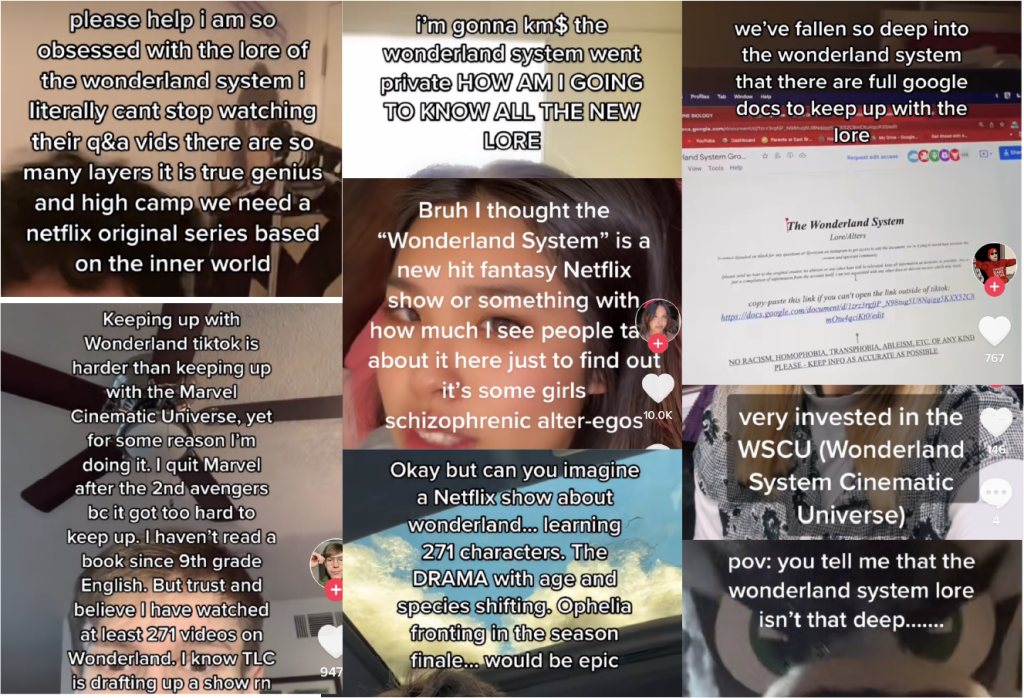 (via)
(via)
In this week’s Learning Everywhere module we were introduced to Thomas & Brown (2011), who posit the question “What happens to learning when we move from the stable infrastructure of the twentieth century to the fluid infrastructure of the twenty-first century?” It’s a question I think about a lot, probably too much, especially in the context of the information professions. It also reminds me of a series of blog posts I read a few years ago: In “The Lore Zone,” Marrs & Dingsun (2022) define lore as “the new modes of self-mythologization developed within network media, and the forms of history and canon stored within media artifacts that online groups produce” and explore this concept via meta-memes, video game livestreams, music fandoms and a narrative TikTok mythology that grew around one teenage user’s possibly self-diagnosed case of disassociate identity disorder known as “The Wonderland System.”
Lores emerge as deeply coded in-group jokes mythologies, shared, implied histories that are frequently post-linear, post-literal, and/or post-meaning. They reward real-time, full-time social immersion and exclude – if not actively reject – the sorts of organizational and observational work that has typically served as the backbone of the information sciences. And while Marrs & Dingsun primarily consider pop culture lore, where the lore model is still the domain of the internet’s most harmless nerds, you don’t have to extrapolate very far to realize how this mode of information distribution might become more damaging when applied to, say, science (anti-vaxxers) or politics (Q Anon).
So I’m wondering, how can librarians and other information professionals adapt to these changes? How do we accommodate patrons when their fundamental knowledge base might differ so greatly from our own? And from one another’s? And how can we learn, let alone cultivate learning, when the information sources have become so slippery and porous? It might be constructive to think of a library as a space to help reconcile disparate viewpoints, to give patrons the space and resources necessary to tell their own stories, to share their respective lore dumps in a less siloed environment than what they typically would find online.
Marrs, L. & Dingsun, T. (2022, February 28). The lore zone. Other Internet. https://otherinter.net/research/lore/
Thomas D. & Brown, J.S. (2011). A new culture of learning: Cultivating the imagination for a world of constant change.